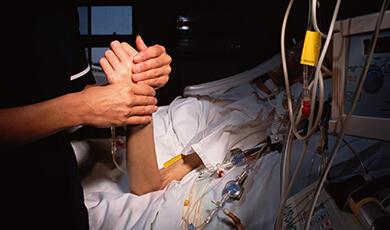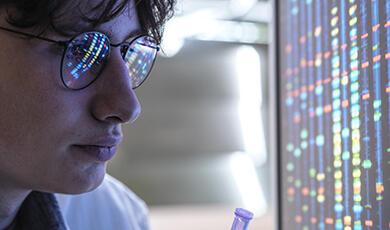Press release: Gene Editing: A New Legal Frontier

Lecture looks at gene editing to treat diseases, and the complex ethical arguments around its potential to 'enhance' humans
What if we could stop early onset dementia or Huntingdons?
Embargo: 17 April 2pm
I would like to invite you to Gene Editing: A New Legal Frontier, by Professor Imogen Goold, which is taking place today at 1pm (Gresham College/ online). In this lecture Professor Goold, Visiting Professor of Medical Law at Gresham College, will look at human gene editing – examining what we are doing now and what we might be able to do in future, and the legal and ethical issues that gene editing presents.
In the lecture Goold will explain how gene editing works; and look at some of the reasons you might want to edit DNA; she will also look at the difference between changing somatic and germline (heritable) DNA.
She will go on to look at how genome editing tools are enabling researchers to better understand gene function, for example by knocking out a single gene in an animal; to create genetically engineered animals to understand how diseases work, and to develop therapies and treatments more effectively, for example in treating cancers.
Finally she will explore the complex ethical arguments around human ‘enhancement’ and what it would mean to ‘design our children’.
“Just because something is natural, does not mean it is necessarily good” Goold will say. “We clearly don’t think that, or we wouldn’t treat diseases. We would always accept our lot and be ok with it. We actually do precisely the opposite.”
She will go on to look at the considerations that people may want to make when considering human enhancement, such as “Will the benefits be shared with everyone?” or result in inequities. What if one country does it and another does not? And what if we only consider diseases and disability, including for example early onset dementia - “because we are not doing this via abortion or embryo selection we avoid a lot of the moral problems these methods raise. We really are selecting against the disease not the person with the disease”? But again, this approach presumes disease and disability are harms; and Goold will discuss whether our world might be less rich and diverse without some disabilities.
She will conclude: “We must step towards the future carefully, and considering all aspects of the impact of the technology rather than proceeding too hastily, to our cost.”
ENDS
Notes to Editors
You can sign up to watch the hybrid lecture online or in person; or email us for an embargoed transcript or speak to Professor Goold: l.graves@gresham.ac.uk / 07799 738 439
Read more about Professor Imogen Goold
Sign up to our monthly newsletter here to get advance notice of our events.


 Login
Login





